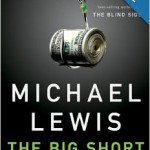SEC issues M&A Advisor interpretations.

I have written in the past about the challenges of people looking to facilitate deals without a broker-dealer license. Short answer: You probably can’t get paid.
However, there is an entire industry of business brokers and M&A advisors that seem to get close to the line. In January 2014, the SEC outlined when an M&A advisor could assist in the sale of a privately held company without registering as a broker-dealer. Its been hanging out there for a while, but I figured this was a good enough time to write about it.
First, it defined “M&A Broker” as “a person engaged in the business of effecting securities transactions solely in connection with the transfer of ownership and control of a privately-held company (as defined below) through the purchase, sale, exchange, issuance, repurchase, or redemption of, or a business combination involving, securities or assets of the company, to a buyer that will actively operate the company or the business conducted with the assets of the company.”
In addition, a “privately-held company” is not an SEC filing company
The SEC provided a list of several conditions:
- The M&A Broker will not have the ability to bind a party to an M&A Transaction.
- An M&A Broker will not directly, or indirectly through any of its affiliates, provide financing for an M&A Transaction.
- The M&A Broker may not have custody, control, or possession of or otherwise handle funds or securities issued or exchanged in connection with an M&A Transaction or other securities transaction for the account of others.
- No M&A Transaction will involve a public offering.
- Any offering or sale of securities will be conducted in compliance with an applicable exemption from registration under the Securities Act of 1933.
- No party to any M&A Transaction may be a shell company, other than a business combination related shell company.
- To the extent an M&A Broker represents both buyers and sellers, it will provide clear written disclosure as to the parties it represents and obtain written consent from both parties to the joint representation.
- An M&A Broker will facilitate an M&A Transaction with a group of buyers only if the group is formed without the assistance ofthe M&A Broker.
- The buyer, or group of buyers, in any M&A Transaction will, upon completion of the M&A Transaction, control and actively operate the company or the business conducted with the assets of the business.
- Any securities received by the buyer or M&A Broker in an M&A Transaction will be restricted securities within the meaning of Rule 144(a)(3) under the Securities Act.
There are more details in the SEC’s letter, which we may cover in another post. It will be interesting over time to see if the SEC focuses on one or more elements of the interpretation.




